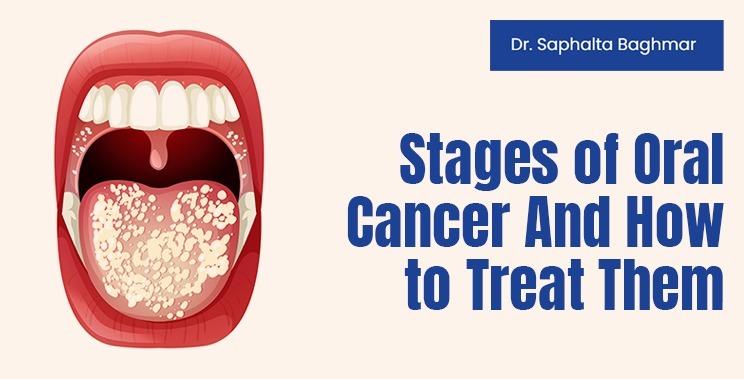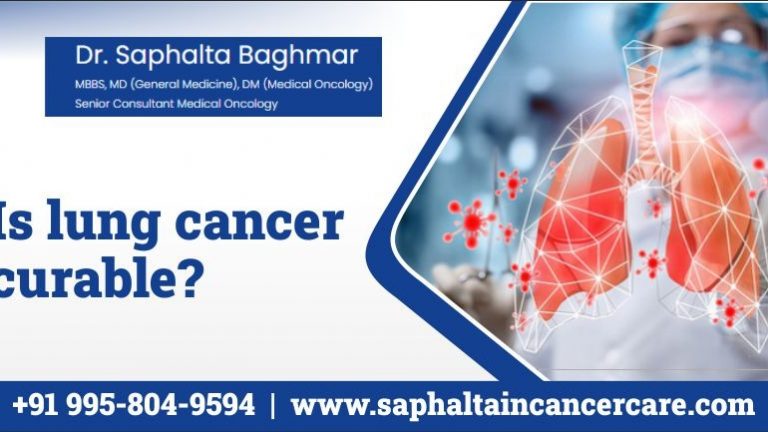Oral cancer is among the most common types of cancer worldwide. Most of these cases are the result of tobacco use and smoking. As per the statistics, the number of oral cancer cases is much higher in men than women. Also, this cancer is known to affect white people more than black people.
As with all other types of cancer, early detection and oral cancer treatment can allow you to lead a long and healthy life. Hence, the stage of cancer at the time of detection and the mouth cancer treatment plan are major determinants of your recovery curve.
This article focuses on the different oral cancer stages and the respective oral cancer treatment plan suggested by oncologists. Read on to know more about the same.
Stage 0 Oral Cancer
At this oral cancer stage, cancer only affects the upper layer of cells. This can be on the lip, the inner side of the cheek, the mouth floor, or the tongue’s top.
Treatment For Stage 0 Oral Cancer
Surgery is the preferred mouth cancer treatment at this stage. Your oncologist can suggest either Mohs surgery, surgical stripping, or thin resection surgical method. Here, the surgeon will remove the top layer of cancerous cells and a few layers of normal cells to prevent the spread of cancer.
If, in case, there is a risk of recurrence, the doctor would prescribe chemotherapy and/or radiotherapy after the surgery.
Stage I And II Oral Cancer
At this oral cancer stage, cancer has spread to the deep tissues and the lymph nodes may or may not be affected yet. This oral cancer stage can affect the lips or any part of your oral cavity.
Treatment For Stage I and II Oral Cancer
If oral cancer has affected the lips, surgery might be the best way to remove it, followed by radiotherapy. If the tumor is thick and has spread to the lymph nodes in the neck region, reconstructive surgery can help preserve the structure and function of the lips.
Surgery is the preferred treatment method for cancers of the oral cavity as well. In case the lymph nodes appear affected in the imaging tests, the doctor might perform a lymph node dissection surgery to check the spread of cancer.
For people with other health conditions who cannot undergo surgery, a combination of chemotherapy and radiotherapy is also found effective.
Stage III And IVA Oral Cancer
At this oral cancer stage, cancer targets the floor of the mouth, the inside of the cheek, the gums, the front of the tongue, and the hard palate. It has also spread to the nearby tissues and, probably, the lymph nodes in the neck region.
Treatment Of Stage III And IVA Oral Cancer
If the surgical removal of the tumor is possible, the doctors suggest surgery as the primary treatment. Chemotherapy and radiotherapy can be prescribed before the surgery to reduce the size of the tumor. Or after the surgery, chemotherapy and radiotherapy can prevent cancer from recurring.
Chemoradiotherapy is also effective for people who cannot undergo surgery due to other health concerns.
Stage IVB And IVC Oral Cancer
This oral cancer stage has spread to the nearby tissues, structures, and lymph nodes. In stage IVC, cancer sometimes spreads to vital organs like the lungs.
Treatment Of Stage IVB And IVC Oral Cancer
Depending on what areas are affected, the doctor would decide whether to devise a treatment plan for recovery or to relieve the symptoms. Usually, surgery is not very helpful in this case. A combination of radiotherapy, chemotherapy, and immunotherapy is a part of the mouth cancer treatment plan for this stage.
The Outlook
While oral cancer can be difficult to deal with, its early detection can make things easier. Also, a good cancer care team with expert and experienced doctors can increase the chances of your full recovery.
Dr. Saphalta Baghmar devises personalized treatment plans for you. We suggest you the best doctors in India who have extensive experience in handling similar cases. This helps make your treatment journey comfortable and effective.
FAQ
1. Can oral cancer be cured completely?
Oral cancer can be cured completely if detected and treated at an early stage. During the later stages, surgery might still be an option and can increase the chances of completely curing the condition. Other treatment methods like chemotherapy, radiotherapy, immunotherapy, and targeted therapy may also help in battling oral cancer.
Please note that oral cancer can recur after being completely cured. Therefore, being in touch with your oncologist and undergoing regular screening is advised.
2. What is the best treatment for oral cancer?
Surgery is the first choice for oral cancer treatment if the case allows for it. This could be paired with chemotherapy, radiotherapy, or both to either reduce the size of the tumour before surgery or kill the remaining cancer cells after the tumour is removed. If surgery is not possible, oncologists suggest a personalized treatment plan that includes one or more of the cancer treatment methods like chemotherapy, radiotherapy, immunotherapy, targeted therapy, and others.
3. What is the cost of oral cancer treatment in India?
The cost of oral cancer treatment in India mainly depends on the methods opted for and the estimated duration of the treatment. The overall health status of the patient and the expertise of the cancer care team may also play a part in the final cost.
Consult with your team about the estimated cost as per the devised treatment plan and schedule. Discussing it would give you a better idea of what to expect.
4. Does mouth cancer spread fast?
Mouth cancer is a type of squamous cell carcinoma, which is among the faster-spreading types of cancer. While oral cancer spreads considerably faster than many other common forms of cancer, it is still classified as a type of cancer that spreads at a moderate rate.
It is important to detect oral cancer, like all other types, at an early stage and get the necessary medical attention. As the cancer spreads with time during the later stages, the chances of curing the condition completely begin decreasing.
5. What is the success rate for mouth cancer?
The success rate of oral cancer recovery mainly depends on the stage at which the cancer was detected and the medical attention provided to the patient right after detection. About 28% of oral cancer cases are detected at an early stage, and around 86% of these cases have a roughly 5-year survival rate. However, if the cancer has spread to the surrounding areas, like the lymph nodes, tissues, or organs, the 5-year survival rate is roughly 69%.


